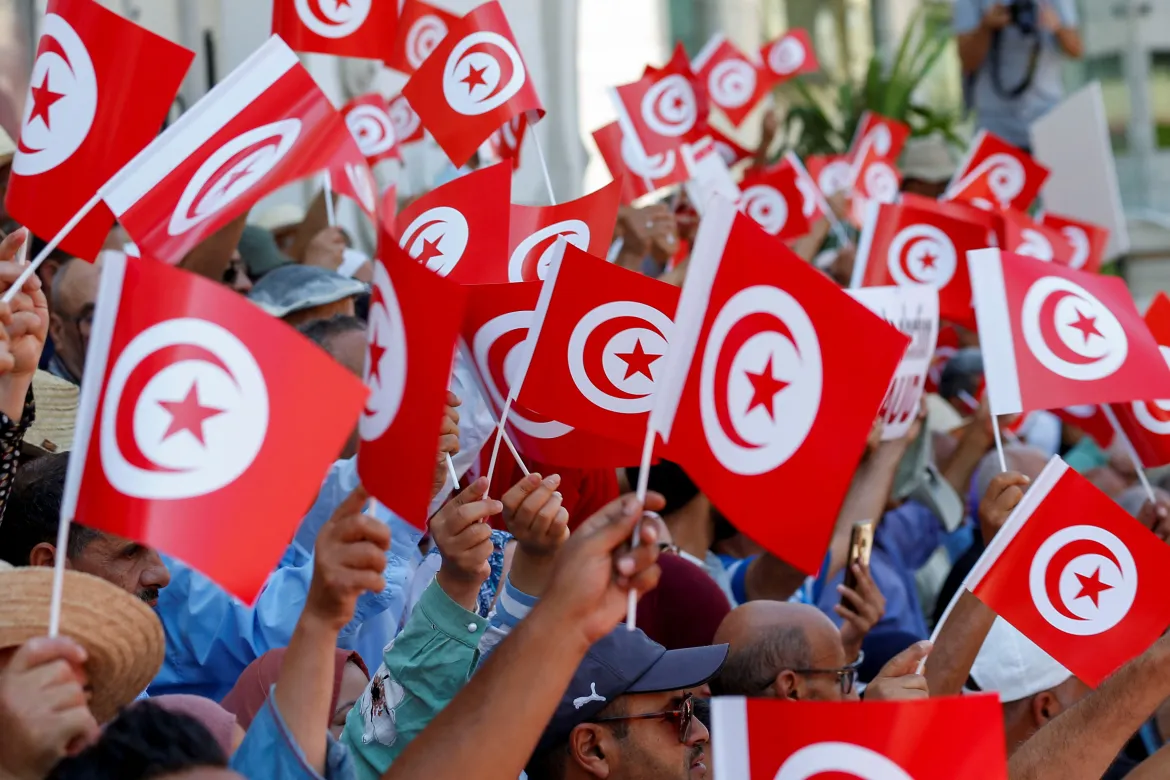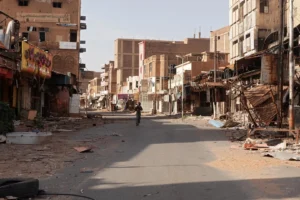Every time Mohamed Ali finds himself wrestling with Tunisia’s encrusted bureaucracy, the experience is the same: long delays and endless waits. That was the case last week when his uncle sought his help to register the sale of a plot of land.
“We had to go from office to office, with everyone sending us to different bureaus,” said Ali, an unemployed man in his early thirties from the coastal town of Ben Guerdane, close to the border with Libya.
“It’s the same with everything. If you need to register a birth, or a death, or whatever, you’re going to need half a day,” he added. “It’s crazy.”
Ali is not alone. In Tunisia and across much of North Africa, entire populations remain in hock to the giant, sclerotic bureaucracies that were bequeathed by their former colonial rulers and remain a central tenet of domestic politics today. In Tunisia’s case, the costs of that bureaucracy risk pushing it towards bankruptcy.
European colonial bureaucracies created government jobs and – by extension – an administrator class dependent on their overseas sponsor. Private enterprise, in Tunisia at least, was largely neglected, leaving no room for the small and medium-sized enterprises that typically make up the backbone of most countries’ economies.
Independence did little to correct that, as did the years that followed the revolution in 2011 that was brought on by frustration at the dwindling opportunities for employment within the state and its allied enterprises.
With unemployment as then and now a key driver of social unrest, successive administrations turned to the welfare state to address their citizens’ aspirations.
“Job creation slowed down post-revolution, as the economy failed to produce sufficient opportunities, particularly for university graduates and the prime working-age population,” reads a World Bank note. “While the state sought to compensate citizens through public employment creation and large consumer and producer subsidies, it has yet to tackle the profound distortions holding back the economy.”
‘Too much and too little state’
Currently, Tunisia has one of the highest rates of public spending in the world relative to the size of its economy, with a sorely-needed loan by the International Monetary Fund (IMF) largely dependent on its reform.
Subsidies on items such as bread, coffee and fuel make up a significant portion of that spending – 8 percent of the country’s gross domestic product (GDP) last year. However, much of the remaining cost goes to public sector salaries, primarily administrative jobs in the country’s ministries and allied state-owned enterprises.
Traditional areas of government spending, such as health, infrastructure or social care, appear, for the most part, to be overlooked almost entirely.

Less than two-thirds (PDF) of the waste in the capital, Tunis, is collected. Spending on healthcare, another state concern, appears to be decreasing, while maintaining the country’s roads and social systems barely register as afterthoughts.
The drains and wadis needed to maintain the country’s waterways – vital in the current drought – have lain dormant in administrators’ minds, only now gaining relevance as harvests fail and, as a consequence, more pressure is put on the country’s extensive and expensive food subsidy system.
“It’s paradoxical, isn’t it?” Hamza Meddeb, a Tunisian academic with the Carnegie Middle East Centre, said. “Tunisia suffers from both too much and too little state. It has the state, lots of it, but it’s all in the wrong place. Public services, for which there’s a massive demand, are almost non-existent, while the administration is everywhere.”
Now, as in 2011, the bulk of Tunisia’s unemployed are young graduates who hold degrees that often “do not match” the needs of the market. As a result, it is the state that inevitably picks up the pieces.
Overall, about 350,000 people are employed within Tunisia’s public sector, the largest employer in a country of some 12 million people with an economy that has failed to flourish under the weight of a small number of families that dominate everything from clothing stores to banks.
For many, employment by the state offers security, a steady salary and inevitable career progression. Employment in the private sector, as well as being hard to find, offers little but lower salaries and precarity.
“Over the last decade, the wage bill [of public sector workers] has tripled,” Meddeb said. “That’s not just recruitment. Salaries, which before the revolution were reviewed every three years, are now reviewed annually,” he added.
“For instance, a public sector salary that was 900 Tunisian dinars [$291] in 2011, is now around 1,600 Tunisian dinars [$520], which is larger than comparable wages in the private sector [by about 10 percent]. It creates a vicious circle,” said Meddeb.
“You put one set of salaries up, you have to put all up and then, by the time of the next review, the union are talking about inflation.”
Given its scale, it is hardly surprising that the state’s bureaucracy has taken a central role in negotiations with the IMF. For years, Tunisia’s donors, from the World Bank to the European Union, have been pushing Tunisia to address its public sector wage bill. But analysts say successive governments have opted to kick the can down the road rather than take serious action to address the issue.
The current round of talks – with some $1.9bn on the table – is no different. The IMF is once more pressing Tunisia to liberalise its food subsidy system and its public sector.
However, given the private sector’s limited ability to absorb any potential layoffs, the impact on the country could be significant.
Bureaucracy lumbering on
Unemployment has figured largely in protests since the revolution, with demonstrations over the ingrained nature of the issue becoming an almost annual event. In 2019, the election of President Kais Saied – a political independent who had made a point of speaking for the jobless – galvanised the hopes of thousands who felt let down by what they had come to regard as the empty promises of politicians.
But thus far, central government action to reduce public sector recruitment has been limited to the cessation of a scheme to automatically offer public sector jobs to graduates suffering from long-term unemployment. Little more has been discussed.

Nevertheless, while loan and aid negotiations rumble on, the omens remain grim. At the moment, public debt sits at about 90 percent of GDP, while fuel and subsidised foods are in short supply. In June, credit ratings agency Fitch downgraded Tunisia’s rating to CCC-, stating the chances of a default on its international loans were “high”.
The implications of a default, which grows more likely the longer the IMF loan remains unsigned, would be catastrophic – not least for those employed by the public sector.
“Overnight, their salaries would be reduced significantly,” Meddeb said.
“Imports, on which we all rely, would soar in price and, in reality, Saied risks losing a key constituency – one that depends upon him and his position for support. This is why he’s vested in preserving the status quo, no matter what the cost. As soon as he mentions reform”, with no network of small and medium-sized enterprises that might typically absorb any jobs lost, “he risks jeopordising everything”, added Meddeb.
Yet, reforms instituted in nearby Morocco, once saddled with a similarly cumbersome colonial bureaucracy, have provided a practical example of what could be done to address the issue. In recent years, Rabat has transformed its administration, offering much-sought-after jobs within the state to trained and motivated graduates.
In contrast, Tunisia’s bureaucracy, like that of Cairo and Algeria, lumbers on.
None of this helps Ali, or his uncle, for that matter. For them, the constant waits and delays at various offices remain a fact of life. Like countless others, they remain victim to bureaucracies that have become ends in themselves.
Source: Al Jazeera











Add Comment